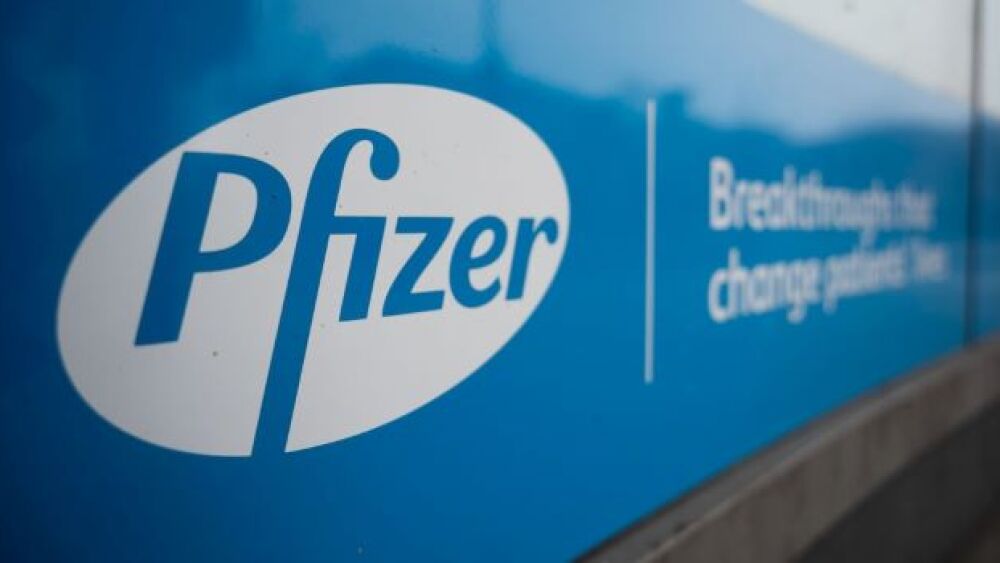Pfizer announced in a statement on Wednesday that the prespecified non-inferiority criteria for a post-marketing safety study of rheumatoid arthritis (RA) drug XELJANZ® (tofacitinib) were not met.
Christophe Gateau/picture alliance via Getty Images
Pfizer announced in a statement on Wednesday that the prespecified non-inferiority criteria for a post-marketing safety study of rheumatoid arthritis (RA) drug XELJANZ® (tofacitinib) were not met, but the company remains hopeful that future analyses of the study will be more promising.
Tofacitinib, a selective Janus kinase (JAK) inhibitor, is currently approved in the U.S. for the treatment of adults with moderately to severely active RA after methotrexate failure, adults with active psoriatic arthritis (PsA) following failure with disease modifying antirheumatic drug (DMARD), and adults with moderately to severely active ulcerative colitis (UC) following failure with tumor necrosis factor inhibitor (TNFi).
In September of last year, the U.S. Food and Drug Administration (FDA) approved Pfizer’s tofacitinib for patients aged 2 years or older with active polyarticular course juvenile idiopathic arthritis (pcJIA). The approval marks tofacitinib as the first and only JAK inhibitor approved in the states for pcJIA.
“Although there are already several advanced treatments available, tofacitinib will be an appealing new option given it does not require injections or infusions,” according to a statement made by Dr. Hermine Brunner, Director of the Division of Rheumatology at Cincinnati Children’s Hospital Medical Center and Scientific Director of the Pediatric Rheumatology Collaborative Study Group. “These can be quite burdensome to both children with pcJIA and their caretakers. The FDA approval of Xeljanz for pcJIA is positive news for this community as it provides a new advanced treatment option in an oral formulation.”
The recent Pfizer post-marketing safety study’s primary objective was to compare the safety of tofacitinib at 5 mg twice daily and 10 mg twice daily with a TNF inhibitor in patients with RA aged 50 years or older who presented with one additional cardiovascular (CV) risk factor.
Co-primary endpoints included non-inferiority of tofacitinib versus the TNF inhibitor in terms of major adverse cardiovascular events (MACE) and malignancies.
A total of 4,362 patients received the treatments in the study, but only 135 patients developed MACE and 164 patients developed malignancies. The most frequently reported MACE in the tofacitinib group included myocardial infarction, while lung cancer was the most frequently reported malignancy.
An overall higher incidence of events was observed in all treatment groups among patients with a higher prevalence of risk factors for MACE and malignancy.
According to the results of the safety study, the prespecified non-inferiority criteria between the two therapies were not met for the co-primary endpoints. In addition, there was no evidence to indicate a difference between the two doses of tofacitinib in terms of the primary endpoints.
“Providing information on the safe and effective use of our medicines is imperative,” said Tamas Koncz, M.D., Ph.D., Pfizer’s Chief Medical Officer in charge of Inflammation and Immunology. “We believe that extensive additional analyses of these study data, and communicating them as soon as possible, will further clarify the benefit and risk profile of tofacitinib to help inform medical decision making and patient care.”
Pfizer has not yet released full study results beyond the co-primary endpoints. The company says it is currently working with the FDA, among other regulatory agencies, to review the study results once they are available.
The American pharmaceutical company has had a slightly tumultuous journey with tofacitinib.
Earlier this month, Pfizer, sued generic drug maker Aurobindo over allegations that the latter company’s generic versions of Xeljanz infringe on two patents from Pfizer, which are set to expire in 2023 and 2025. Aurobindo has maintained that the patents “are invalid, unenforceable, and/or will not be infringed by the commercial manufacture, use or sale” of the generic forms of Xeljanz.
If successful, Pfizer hopes its suit against the Indian drug maker will halt the production of the generic versions before the patents for the 5 mg and 10 mg dosages expire.





